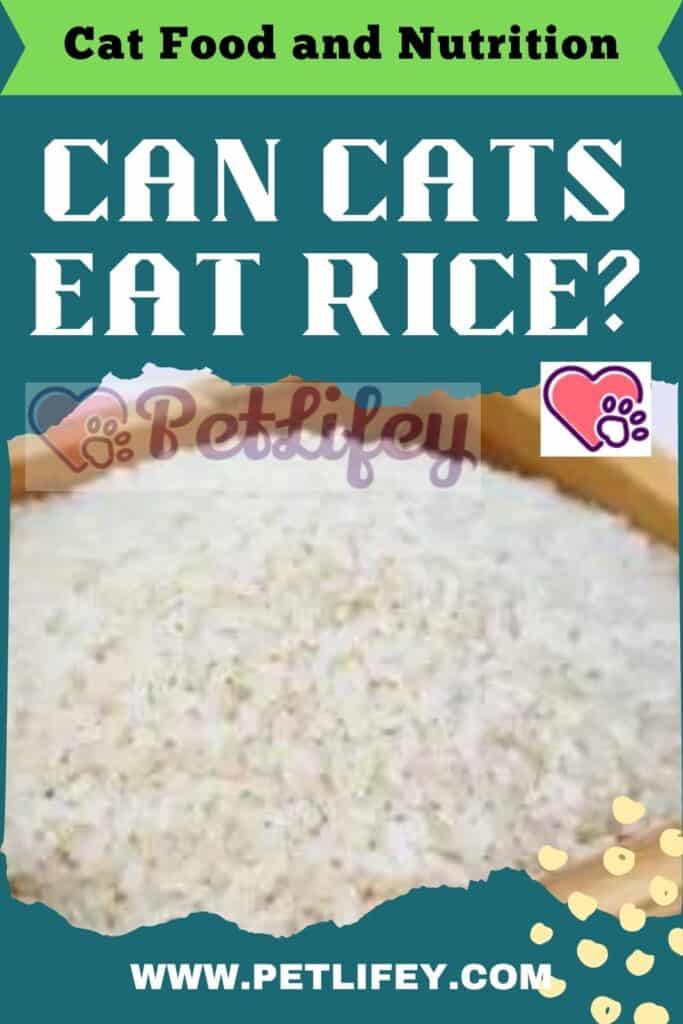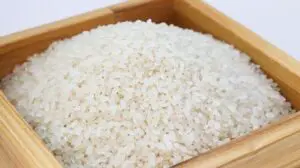
Rice is a food increasingly consumed so it is normal to wonder if the cat can eat rice, when and what to pay attention to.
Rice is, together with wheat, one of the most consumed cereals. In some countries of the world, such as China, for example, it is very popular as it is the basis of various dishes, some of which have recently come to us such as sushi. Between arancini and risottos that have spread from one region to another, or to other dishes such as croquettes and especially in summer rice salads, rice is really often present on our tables.
Among its advantages, rice is easy to keep and is a product that we could define as accessible to all as a cost and as demonstrated above, we can really use it as a base for many recipes. In addition to being highly appreciated by our palates, rice is also a source of iron, vitamin B and manganese, so we might think it’s a good idea to give our cat some rice, but can we do it?
Rice is not one of the toxic foods for cats so it could theoretically be eaten without any problems. In the commercial preparations we buy for our cat we sometimes find rice so we might think that there are excellent reasons to give it to him but in reality this is not the case.
When to give the cat rice and how
You must first keep in mind that each cat has a different age, a different build and different health conditions that make certain foods more or less necessary. In general, however, rice is very useful in case of diarrhea because it absorbs excess fluids present in the intestine, also thanks to the presence of fibers contained in it, and favors the cessation of this annoying disorder. In the long run, diarrhea can also lead to intestinal problems and your pet’s dehydration.
Brown rice contains more fiber than white rice since it has not been stripped of the bran which gives it its brown color so it is even more useful for cats with intestinal problems.
So since not all preparations for cats contain rice, making rice for your cat could really help him. However, there are preparations that contain it, along with other cereals such as wheat and wheat, so the advice is not to abound with cereals in the cat’s diet by giving these preparations together with rice in the same meal.
Even if rice is not toxic to cats, it can help improve the absorption of liquids, but remember that the main part of a feline’s diet must be made up of animal proteins given by proteins and of animal type since it is an animal. carnivorous. Rice is a food that does not have any type of protein intake.
In general, rice does not have any type of vital nutrients for the cat so a diet almost exclusively based on rice could lead to malnutrition in adults and elderly individuals while in small ones to underdevelopment.
In addition it must be said that cats digest cereals with difficulty so the only advantage is that they make them feel satiety first, which is why they are often added to some products for cats especially with problems in maintaining the line or already overweight.
But in excessive quantities it can lead to gas accumulation, which if excessive can cause breathing problems. The advice is to introduce rice in a very sporadic way and in very small quantities as a cat that has never eaten rice could reject it.
To give or not to give rice to the cat and when to avoid

So we might ask ourselves, given that the only advantage of rice is the fibers it contains which help especially in case of diarrhea, if it is necessary to give it to the cat. In excessive quantities it is not recommended and the first time may not tolerate it but since it is harmful only in disproportionate quantities there is nothing wrong with giving a little rice to the cat as long as it is included in a diet suitable for him, also personalized in based on his age, size and state of health.
Some cats are also attracted to raw cereals so the advice I give you is not to leave bags with rice unattended as raw is absolutely inadvisable, even in small quantities, for cats. As for the cooked one, it is preferable that you consume it only in the phase of diarrhea, perhaps mixed with special products for him.
What is absolutely not recommended is to give the cat food for us humans bought in restaurants or other places based on rice as they often contain garlic and onion which are absolutely toxic for the cat and can lead to a haemolytic crisis.
So even if your cat may be looking at sushi lovingly we don’t recommend giving it to him even if on the surface it seems that it does not contain garlic and onion because they may have been cleverly disguised by the cook visually or tastefully with aromas. In the same way, even if you prepare the rice for yourself, remember not to give the seasoned rice to your cat even if you have set aside onion and garlic halfway through cooking.
However, given the absence of nutrients for him and given the risk of swelling, it is not necessary to give rice to cats without intestinal problems. There are also specific supplements and vitamins to help the cat with diarrhea that you could use as an alternative to rice.
In any case, when the cat has a health problem, such as that of the digestive system, it is preferable to rely on the veterinarian and not a do-it-yourself remedy also because your pet could have more serious problems masked and the veterinarian could be in able to cure them and also to suggest the most suitable products for him for problems such as diarrhea without rice.
Pulling the strings, rice is useful when the cat has diarrhea even if there are valid alternatives that the vet might suggest. Even if it is not a toxic food for the cat, it is still not essential for its diet, some cats may not digest it and it is absolutely not recommended in excessive quantities, seasoned and raw.






